Related Research Articles

Thomas Sowell is an American economist, social philosopher, and political commentator. He is a senior fellow at the Hoover Institution. With widely published commentary and books—and as a guest on TV and radio—he became a well-known voice in the American conservative movement as a prominent black conservative. He was a recipient of the National Humanities Medal from President George W. Bush in 2002.
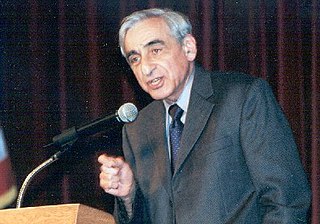
Michael Laban Walzer is an American political theorist and public intellectual. A professor emeritus at the Institute for Advanced Study (IAS) in Princeton, New Jersey, he is editor emeritus of Dissent, an intellectual magazine that he has been affiliated with since his years as an undergraduate at Brandeis University. He has written books and essays on a wide range of topics—many in political ethics—including just and unjust wars, nationalism, ethnicity, Zionism, economic justice, social criticism, radicalism, tolerance, and political obligation. He is also a contributing editor to The New Republic. To date, he has written 27 books and published over 300 articles, essays, and book reviews in Dissent, The New Republic, The New York Review of Books, The New Yorker, The New York Times, Harpers, and many philosophical and political science journals.

Karl Gunnar Myrdal was a Swedish economist and sociologist.
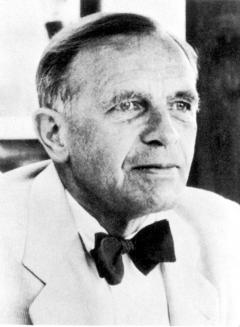
Wilhelm Röpke was a German economist and social critic, best known as one of the spiritual fathers of the social market economy. A Professor of Economics, first in Jena, then in Graz, Marburg, Istanbul, and finally Geneva, Röpke theorised and collaborated to organise the post-World War II economic re-awakening of the war-wrecked German economy, deploying a program referred to as ordoliberalism, a more conservative variant of German liberalism.
Arend d'Angremond Lijphart is a Dutch-American political scientist specializing in comparative politics, elections and voting systems, democratic institutions, and ethnicity and politics. He is Research Professor Emeritus of Political Science at the University of California, San Diego. He is influential for his work on consociational democracy and his contribution to the new Institutionalism in political science.

Stephen Samuel Roach is an American economist. He serves as senior fellow at Yale University’s Jackson Institute for Global Affairs, and a senior lecturer at the Yale School of Management. He was formerly chairman of Morgan Stanley Asia, and chief economist at Morgan Stanley, the New York City-based investment bank. In 2009, Dirk Bezemer, a Professor of Economics at the University of Groningen in the Netherlands, noted that Roach was one of the earliest to have predicted the 2008 global financial crisis.

James C. Scott is an American political scientist and anthropologist specializing in comparative politics. He is a comparative scholar of agrarian and non-state societies, subaltern politics, and anarchism. His primary research has centered on peasants of Southeast Asia and their strategies of resistance to various forms of domination. The New York Times described his research as "highly influential and idiosyncratic".
Sir Antony George Anson Fisher, nicknamed AGAF, was a British businessman and think tank founder. He participated in the formation of various libertarian organisations during the second half of the twentieth century, including the Institute of Economic Affairs and the Atlas Network. Through Atlas, he helped establish up to 150 other institutions worldwide.

Albert Otto Hirschman was a German economist and the author of several books on political economy and political ideology. His first major contribution was in the area of development economics. Here he emphasized the need for unbalanced growth. He argued that disequilibria should be encouraged to stimulate growth and help mobilize resources, because developing countries are short of decision-making skills. Key to this was encouraging industries with many linkages to other firms.
Andrew Wilson is a British historian and political scientist specializing in Eastern Europe, particularly Ukraine. He is a Senior Policy Fellow at the European Council on Foreign Relations, and Professor in Ukrainian studies at the School of Slavonic and East European Studies at University College London. He wrote The Ukrainians: The Story of How a People Became a Nation and Virtual Politics: Faking Democracy in the Post-Soviet World.

The Indian Century is a neologism suggesting that the 21st century will be dominated by India, as the 20th century is often called the American Century, and the 19th century as Pax Britannica, as the 17-18th centuries dominated by France and the 15-16th centuries dominated by Spain. The phrase is used particularly in the assertion that the economy of India could overtake the economy of the United States and economy of China as the largest national economy in the world, a position it held from 1 to 1500 CE and from 1600 to 1700 CE.
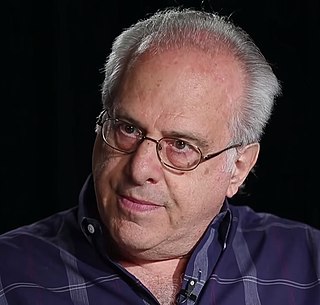
Richard David Wolff is an American Marxian economist known for his work on economic methodology and class analysis. He is a professor emeritus of economics at the University of Massachusetts Amherst and a visiting professor in the graduate program in international affairs of the New School. Wolff has also taught economics at Yale University, City University of New York, University of Utah, University of Paris I (Sorbonne), and The Brecht Forum in New York City.
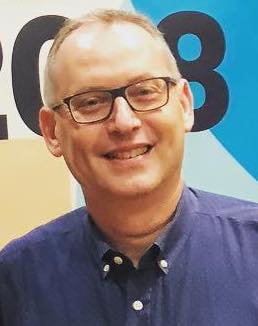
Richard L. Hasen is an American legal scholar and law professor at the University of California, Los Angeles. He is an expert in legislation, election law and campaign finance.

Tim Judah is a British writer, reporter and political analyst for The Economist. Judah has written several books on the geopolitics of the Balkans, mainly focusing on Serbia and Kosovo.
National champions are corporations which are technically private businesses but due to governmental policy are ceded a dominant position in a national economy. In this system, these large organizations are expected not only to seek profit but also to "advance the interests of the nation"; the government sets policies which favor these organizations. The policy is practiced by many governments, in some sectors more than others, but by giving an unfair advantage against market competition, the policy promotes economic nationalism domestically and global pre-eminence abroad contrary to the free market. The policy also deters or prevents venture capitalism.

The Keynesian Revolution was a fundamental reworking of economic theory concerning the factors determining employment levels in the overall economy. The revolution was set against the then orthodox economic framework, namely neoclassical economics.
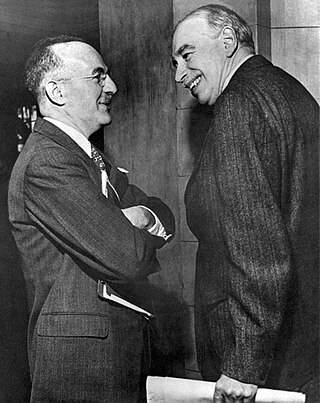
The post-war displacement of Keynesianism was a series of events which from mostly unobserved beginnings in the late 1940s, had by the early 1980s led to the replacement of Keynesian economics as the leading theoretical influence on economic life in the developed world. Similarly, the allied discipline known as development economics was largely displaced as the guiding influence on economic policies adopted by developing nations.

John Eibner is an American Christian human rights activist. He served as the CEO of Christian Solidarity International-USA until 2021. He has also served on the board of the American Anti-Slavery Group, and was a member of the Institute of Historical Research at the University of London.

Sir Dieter Robin Helm is a British economist and academic.

James Alan Robinson is a British economist and political scientist. He is currently the Reverend Dr. Richard L. Pearson Professor of Global Conflict Studies and University Professor at the Harris School of Public Policy, University of Chicago. He also serves as the Institute Director of The Pearson Institute for the Study and Resolution of Global Conflicts at the Harris School. Robinson has previously taught at Harvard University between 2004 and 2015 and also at the University of California, Berkeley, University of Southern California and the University of Melbourne.
References
- ↑ "Richard Cockett". British Library of Political and Economic Science. Retrieved 27 July 2014.[ dead link ]
- 1 2 3 "Richard Cockett" (profile). openDemocracy.
- 1 2 "Richard Cockett". The Economist (profile). Retrieved 1 December 2023.